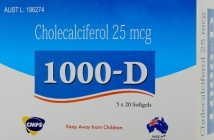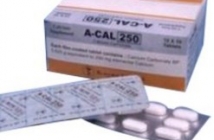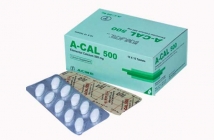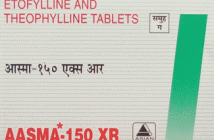Home / Categories / INAR-25MG

INAR-25MG
(10)
INDOMETHACIN-25MG
NSAIDS-ANTIPYRETIC/ANALGESICS
HUKAM
Product Details
Indomethacin
A to Z Drug Facts
Indomethacin
Action
Indications
Contraindications
Route/Dosage
Interactions
Lab Test Interferences
Adverse Reactions
PrecautionsPatient Care Considerations
Administration/Storage
Assessment/Interventions
Patient/Family Education
(in-doe-METH-uh-sin)Indocin, Indocin SR,  Apo-Indomethacin, Indocid, Indocid SR, Indocid Ophthalmic, Indocollyre, Indotec, Novo-Methacin, Nu-Indo, Pro-Indo, RhodacineIndomethacin Sodium TrihydrateIndocin IV,
Apo-Indomethacin, Indocid, Indocid SR, Indocid Ophthalmic, Indocollyre, Indotec, Novo-Methacin, Nu-Indo, Pro-Indo, RhodacineIndomethacin Sodium TrihydrateIndocin IV,  Indocid P.D.A.Class: Analgesic/NSAID
Indocid P.D.A.Class: Analgesic/NSAID
 Action Decreases inflammation, pain, and fever, probably through inhibition of cyclooxygenase activity and prostaglandin synthesis.
Action Decreases inflammation, pain, and fever, probably through inhibition of cyclooxygenase activity and prostaglandin synthesis.
 Indications Indomethacin: Symptomatic treatment of rheumatoid arthritis, osteoarthritis, ankylosing spondylitis, gouty arthritis, acute painful shoulder. Indomethacin sodium trihydrate (IV): Closure of patent ductus arteriosus. Unlabeled use(s): Treatment of primary dysmenorrhea; migraine prophylaxis; treatment of cluster headache, polyhydramnios, sunburn; cystoid macular edema.
Indications Indomethacin: Symptomatic treatment of rheumatoid arthritis, osteoarthritis, ankylosing spondylitis, gouty arthritis, acute painful shoulder. Indomethacin sodium trihydrate (IV): Closure of patent ductus arteriosus. Unlabeled use(s): Treatment of primary dysmenorrhea; migraine prophylaxis; treatment of cluster headache, polyhydramnios, sunburn; cystoid macular edema.
 Contraindications Hypersensitivity to aspirin, iodides, or any NSAID. IV form is also contraindicated in the following cases: Proven or suspected untreated infection, bleeding, thrombocytopenia, coagulation defects, necrotizing enterocolitis, significant renal impairment, congenital heart disease when patency of ductus arteriosus is necessary for satisfactory blood flow. Suppositories contraindicated in recent bleeding or proctitis history.
Contraindications Hypersensitivity to aspirin, iodides, or any NSAID. IV form is also contraindicated in the following cases: Proven or suspected untreated infection, bleeding, thrombocytopenia, coagulation defects, necrotizing enterocolitis, significant renal impairment, congenital heart disease when patency of ductus arteriosus is necessary for satisfactory blood flow. Suppositories contraindicated in recent bleeding or proctitis history.
 Route/Dosage
Route/Dosage
Rheumatoid Arthritis, Osteoarthritis, Ankylosing Spondylitis
ADULTS: PO 25 mg bid or tid up to maximum of 200 mg/day (or 75 mg sustained release form 1 to 2 times daily)
Gouty Arthritis
ADULTS: PO/PR 50 mg tid; do not use sustained-release form.
Acute Painful Shoulder
ADULTS: PO 75 to 150 mg/day in divided doses for 7 to 14 days.
Patent Ductus Arteriosus
IV 3 doses total. INFANTS < 2 DAYS OLD: IV 0.2 mg/kg followed by 2 doses of 0.1 mg/kg 12 to 24 hr apart. INFANTS 2 TO 7 DAYS OLD: 3 doses of 0.2 mg/kg separated by 12 to 24 hr. INFANTS > 7 DAYS OLD: 0.2 mg/kg followed by 2 doses of 0.25 mg/kg separated by 12 to 24 hr.
 Interactions
Interactions
Anticoagulants: May increase risk of gastric erosion and bleeding. Beta-blockers, ACE inhibitors: Antihypertensive effects may be decreased. Diflunisal: Diflunisal may decrease the renal clearance and significantly increase indomethacin plasma concentrations that may produce toxicity. Digoxin: May increase digoxin levels. Lithium: May decrease lithium clearance. Loop diuretics: May decrease diuretic effects. Methotrexate: May increase methotrexate levels. Penicillamine: Indomethacin may increase the bioavailability of pencillamine. Potassium-sparing diuretics: Effects of potassium-diuretics may be decreased. Concomitant administration may increase serum potassium levels. Sympathomimetics: Indomethacin and phenylpropanolamine coadministration may result in increased blood pressure.
 Lab Test Interferences False-negative results may occur in dexamethasone suppression test.
Lab Test Interferences False-negative results may occur in dexamethasone suppression test.
 Adverse Reactions
Adverse Reactions
CV: Peripheral edema; water retention; worsening or precipitation of CHF. CNS: Dizziness; headache; drowsiness; confusion. EENT: Visual disturbances; tinnitus. GI: Gastric distress; occult blood loss; nausea; diarrhea; vomiting; ulceration; perforation. GU: Acute renal insufficiency; interstitial nephritis; hyponatremia; renal papillary necrosis. HEMA: Leukopenia. META: Hyperuricemia; hyperkalemia.
 Precautions
Precautions
Pregnancy: Safety not established. Lactation: Undetermined. Children: Safety and efficacy not established in children < 14 yr, except use of IV form in infants. CNS effects: May aggravate depression or other psychiatric disorders, epilepsy, or Parkinsonism; use with caution. Electrolyte imbalance: IV indomethacin may suppress water excretion to greater extent than sodium excretion; monitor electrolytes and renal function. GI effects: Usually not given to patients with active GI lesions or history of recurrent GI lesions. Renal impairment: NSAIDs may worsen preexisting renal dysfunction.
PATIENT CARE CONSIDERATIONS
 Administration/Storage
Administration/Storage
- Administer oral medication with food, milk, or antacids to minimize GI upset.
- Do not crush, break, or allow patient to chew sustained-release capsules.
- Shake suspension before giving, do not mix with antacid or any other liquid.
- Refrigerate oral suspension and suppositories. Protect oral suspension from freezing.
Rectal suppositories
- Encourage patient to retain rectal suppositories for 1 hr.
IV for patent ductus
- Dilute 1 mg/ml or more with normal saline or Sterile Water for Injection without preservative. Administer over 5 to 10 sec. May also be given as retention enema or via orogastric tube.
 Assessment/Interventions
Assessment/Interventions
- Obtain patient history, including drug history and any known allergies (especially allergy to aspirin).
- Observe for signs of rhinitis, asthma and urticaria.
- Assess patient with arthritis: Note type, location, and intensity of limitation of movement and pain before and 1 to 2 hr after administration of standard-release medication and 4 to 6 hr after sustained-release form.
- Monitor BUN, creatinine, CBC, serum potassium, AST, and ALT prior to therapy and periodically during long-term therapy. Urine glucose and protein concentrations may be increased; leukocyte and platelet count may be decreased; bleeding time may be prolonged for 1 day after discontinuation.
- Assess for blurred vision and tinnitus, which could indicate toxicity.
- Observe for signs of GI bleeding (eg, black stools, occult blood loss) throughout therapy.
- Assess for mood changes, depression, hallucinations, confusion.
- Report signs of adverse reactions to physician immediately, especially in elderly patients.
OVERDOSAGE: SIGNS & SYMPTOMS Nausea, vomiting, headache, dizziness, mental confusion, disorientation, lethargy, paresthesias, numbness, convulsions, tinnitus
 Patient/Family Education
Patient/Family Education
- Tell patient to take medication with food, milk, or antacids if GI upset occurs. Inform physician if stomach distress continues.
- Caution patient to avoid aspirin, alcohol, and ibuprofen while taking this medication.
- Instruct patient to report the following symptoms to physician: Skin rash, itching, black stools, unusual bruising or bleeding, visual disturbances, tinnitus, weight gain, edema, or persistent headache.
- Advise patient that drug may cause drowsiness and to use caution while driving or performing other tasks requiring mental alertness.
- Explain that therapeutic effects for rheumatoid arthritis may not be seen for up to 1 mo of drug use.
- Explain purpose of medication and, for parents of infant with ductus arteriosus, emphasize need for frequent monitoring.
Books@Ovid
Copyright © 2003 Facts and Comparisons
David S. Tatro
A to Z Drug Facts






